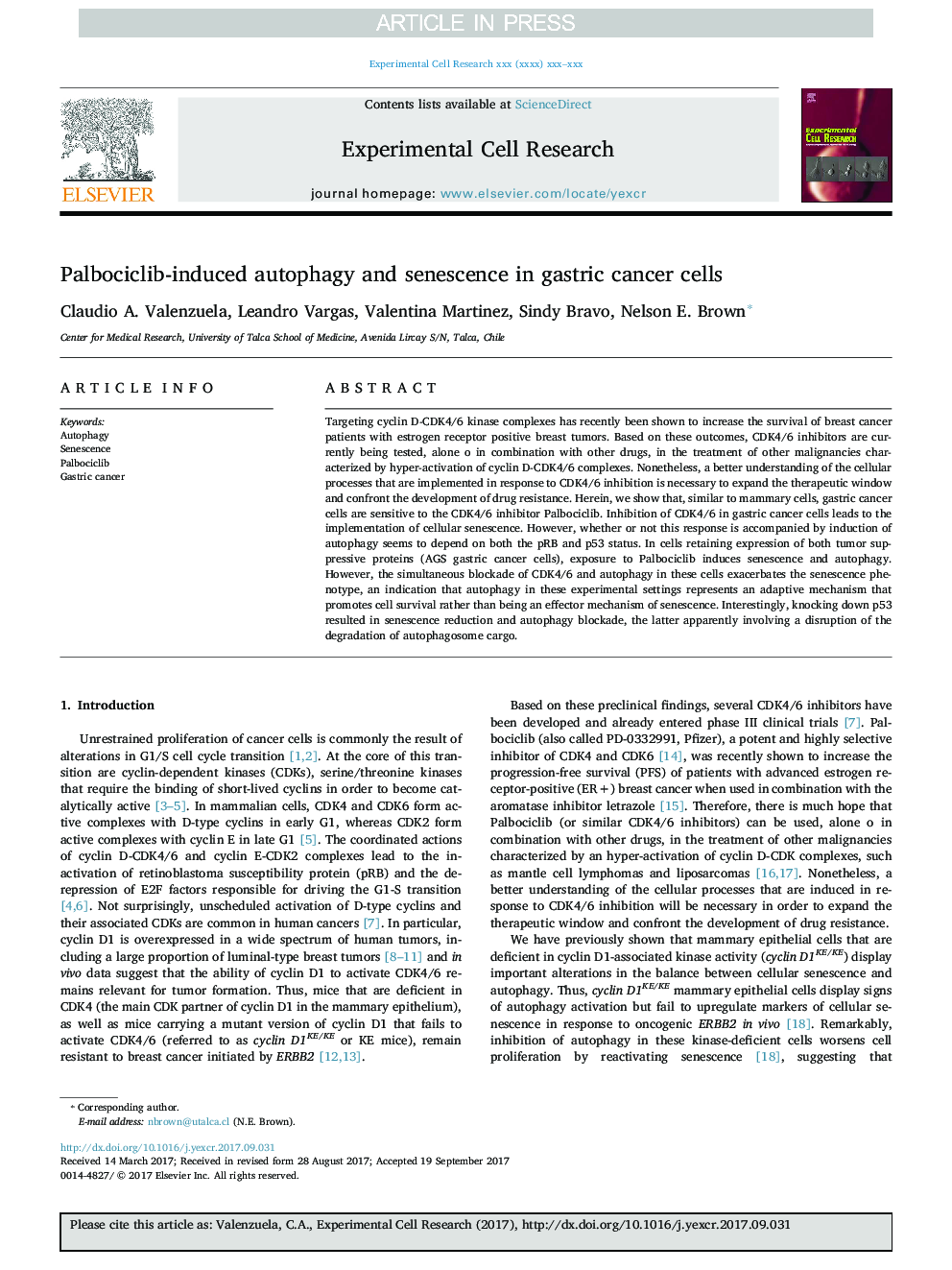| Article ID | Journal | Published Year | Pages | File Type |
|---|---|---|---|---|
| 8452249 | Experimental Cell Research | 2017 | 7 Pages |
Abstract
Targeting cyclin D-CDK4/6 kinase complexes has recently been shown to increase the survival of breast cancer patients with estrogen receptor positive breast tumors. Based on these outcomes, CDK4/6 inhibitors are currently being tested, alone o in combination with other drugs, in the treatment of other malignancies characterized by hyper-activation of cyclin D-CDK4/6 complexes. Nonetheless, a better understanding of the cellular processes that are implemented in response to CDK4/6 inhibition is necessary to expand the therapeutic window and confront the development of drug resistance. Herein, we show that, similar to mammary cells, gastric cancer cells are sensitive to the CDK4/6 inhibitor Palbociclib. Inhibition of CDK4/6 in gastric cancer cells leads to the implementation of cellular senescence. However, whether or not this response is accompanied by induction of autophagy seems to depend on both the pRB and p53 status. In cells retaining expression of both tumor suppressive proteins (AGS gastric cancer cells), exposure to Palbociclib induces senescence and autophagy. However, the simultaneous blockade of CDK4/6 and autophagy in these cells exacerbates the senescence phenotype, an indication that autophagy in these experimental settings represents an adaptive mechanism that promotes cell survival rather than being an effector mechanism of senescence. Interestingly, knocking down p53 resulted in senescence reduction and autophagy blockade, the latter apparently involving a disruption of the degradation of autophagosome cargo.
Related Topics
Life Sciences
Biochemistry, Genetics and Molecular Biology
Cancer Research
Authors
Claudio A. Valenzuela, Leandro Vargas, Valentina Martinez, Sindy Bravo, Nelson E. Brown,
